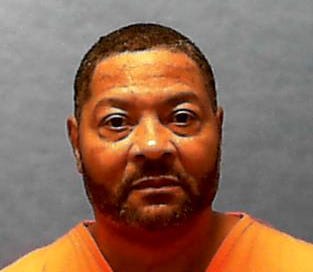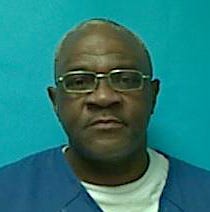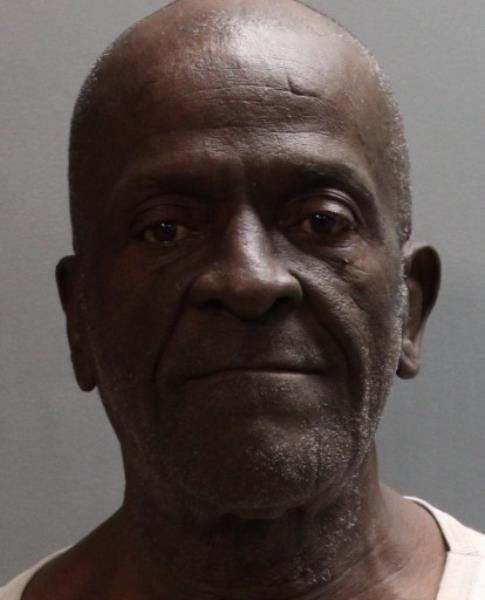Duval County: Kenneth Hartley's attorneys fight for records
The following was reprinted with permission from The Tributary, a nonprofit newsroom covering Florida. It is continued coverage on Kenneth Hartley’s case.1
By Nichole Manna/The Tributary
Death Row attorneys fight state for records in case highlighted by The Tributary
Lawyers for Kenneth “Kip” Hartley, a Jacksonville Death Row inmate convicted of murder more than 30 years ago on the word of a known liar and three jailhouse snitches, are fighting to pry loose records they hope will undo the case, which was the subject of a recent investigation by The Tributary called “Cold-Blooded.”
And in another legal development, Hartley’s co-defendant Sylvester “Duck” Johnson, whose conviction and life sentence hinged largely on the same testimony, filed a motion in Duval County to vacate his murder conviction and life sentence, citing many of the same issues.
Hartley’s lawyers are preparing for what they hope will be an evidentiary hearing over his 1993 conviction in the murder of 17-year-old Gino Mayhew: In essence, that hearing would be a high-stakes opportunity for Hartley’s lawyers to pick apart the prosecution in front of a judge. They think they can document that prosecutors withheld information about star witness Sidney Jones’ history of lying, including on the witness stand during a previous murder case, as well as about the incentives offered to jailhouse witnesses who swore that Hartley confessed behind bars.
Without Jones’ testimony, the evidence against the three men is threadbare.
In a hearing last week, lawyers for Hartley and representatives of the Florida Department of Corrections argued over the scope of Hartley’s efforts to gain access to the prison and Florida Department of Law Enforcement records of various witnesses. Circuit Judge London Kite told them to narrow their differences and come back to court in June.
Hartley’s attorneys believe the records will show there were undisclosed communications between the witnesses, including Jones and prosecutor George Bateh. They also hope to establish that one particular jailhouse informant lied when he claimed he and Hartley knew each other from a previous incarceration in the same facility.
Johnson’s attorney did not return a request for comment and Hartley’s attorneys previously declined to speak with The Tributary, citing their ongoing legal battle. The third co-defendant in the murder, Ronnie “Fish” Ferrell does not have an ongoing appeal, but his case was being examined by the Conviction Integrity Review Unit at the State Attorney’s Office, where some of the evidence that undermines the prosecution of the three men originated.
Hartley and Ferrell were sent to Death Row, though Ferrell’s sentence was reduced to life in 2010 after he successfully argued his defense counsel was ineffective.
Johnson’s motion
Johnson’s 53-page motion echoes some of the same arguments Hartley’s attorneys have also raised.
Johnson’s motion alleges that the state suppressed evidence during his original trial that could have proven his innocence or could have been used to impeach the state’s array of felon witnesses.
No DNA or physical evidence tied any of the three men to the crime. The only person who did was Sidney Jones, who told jurors he saw them force Mayhew into the driver’s seat of his own vehicle at the Washington Heights apartment complex, with Hartley holding a gun to his head. Hartley allegedly then slid into the back seat behind Mayhew, with Ferrell sitting next to Mayhew. The state said Mayhew was forced to drive away to the site of his own execution.
Despite Jones describing a bustling parking lot, he was the only witness to the kidnapping the state produced. Prosecutor notes described a desire to find more witnesses, but there is no apparent sign that effort was successful.
Johnson, according to Jones, followed Mayhew’s Blazer in a distinctive purple truck, which detectives said then became the getaway vehicle.
Attorneys for both Hartley and now Johnson say leads developed by detectives were never shared with the defendants.
For instance, police notes show a Jacksonville Sheriff’s Office detective interviewed Gordon Shavers, a man who dated the sister of the purple truck’s owner. Shavers said the truck was parked outside of their Washington Heights apartment during the time of the murder and couldn’t have been used by Johnson.
That information never made it out of the detective’s notebook, and he was not called to testify at trial.
The state attorney’s investigators re-examining the case interviewed Shavers. They showed him for the first time the police report of the murder and the notes from his JSO interview. He swore out an affidavit saying the information was wrong.
“I did not see Hartley and Johnson hanging together in the days prior to Gino’s murder,” he wrote, citing two assertions in the police report. “I also never told the detective that we started watching our backs because we knew Kip [Hartley]. That is a made-up statement.”
Fighting for records
Hartley’s attorneys recently uncovered 19 calls that were arranged between Bateh and Jones from 2000 to 2007, while Jones was in prison. In 2006, Jones contacted Bateh to request “a telephonic conference in reference to my agreement with your agency” before complaining that he was in jail with Johnson’s uncle and others related to the defendants from the Mayhew case.
At the recent Wednesday hearing about records, Hartley’s attorneys brought up those communications, arguing that they requested the FDOC records for 20 men who were involved in some way in the cases because they believe more undisclosed relationships with law enforcement will be found in the documents.
Counsel from FDOC argued that each request could contain thousands of documents and would be too burdensome and time consuming to gather and redact.
Kite, the judge overseeing Hartley’s motion to vacate, asked his lawyers to reduce their request to the most important men, which attorney Carine Williams said are the two witnesses and JSO informants, Sidney Jones and Juan Brown; and all of the jailhouse informants who testified, Ronald Bronner, Eric Brooks, Anthony Parkin, Robert Williams, Greg Steiger and Ronald Carn.
Kite scheduled a status hearing on June 5 to see what progress Hartley’s team and the state departments have made on fulfilling the record requests.





